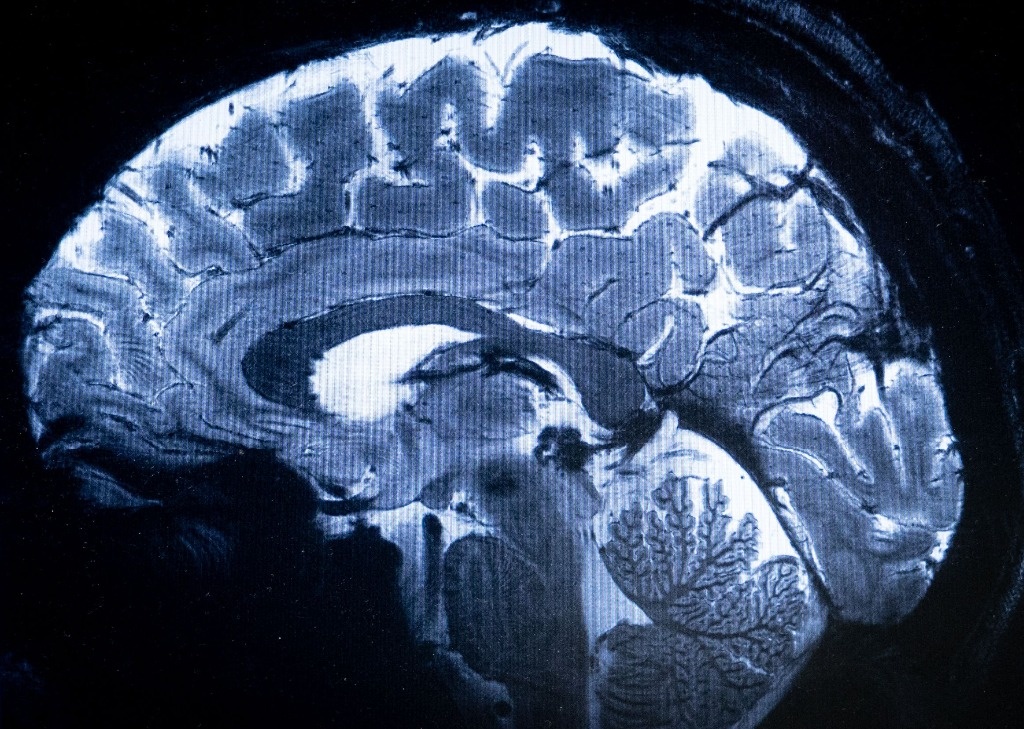Saclay. The most powerful magnetic resonance imaging (MRI) scanner in the world has managed to scan the human brain with an unknown level of precision, its managers in France announced, a feat that could be decisive in detecting diseases.
Researchers from the French Commissariat for Atomic Energy (CEA) first used the machine to scan a pumpkin in 2021.
Recently the health authorities gave them the green light to scan humans.
In recent months, around 20 healthy volunteers have undergone the experience of having their brains scanned in Saclay, a suburb south of Paris.
“We have seen a level of precision never before achieved at CEA,” said Alexandre Vignaud, a physicist working on the project.
The magnetic field created by the scanner is 11.7 Tesla, a unit of measurement named in honor of inventor Nikola Tesla.
This power allows the machine to scan images 10 times more accurate than MRIs commonly used in hospitals, whose power typically does not exceed three Tesla.
On a computer screen, Vignaud compared images taken by this powerful scanner, nicknamed Iseult, with those from a regular MRI.
“With this machine we can see the small vessels that feed the cerebral cortex, or details of the cerebellum that were almost invisible until now,” he said.
A 132-ton magnet
The machine consists of a cylinder that measures five meters long and five meters high, inside which there is a 132-ton magnet fed by a 1,500-ampere coil.
The entrance is 90 centimeters wide, through which the patient slides.
The design is the result of two decades of research by an alliance of French and German engineers.
The United States and South Korea are working on equally powerful MRI machines, but have not yet begun scanning images of humans.
One of the main goals is to multiply our understanding of the anatomy of the brain and what areas are activated when it performs particular tasks.
Scientists have already used MRI scans to show that when the brain recognizes particular things, such as faces, places or words, different regions of the cerebral cortex are activated.
The 11.7 Tesla power will help Iseult “better understand the relationship between brain structure and cognitive functions, for example, when we read a book or perform a mental calculation,” said Nicolas Boulant, scientific director of the project.
On the trail of Alzheimer’s
Researchers hope that the power of the scanner will also shed light on the hidden mechanisms behind neurodegenerative diseases such as Parkinson’s or Alzheimer’s, or psychological problems such as depression or schizophrenia.
“For example, we know that a particular area of the brain, the hippocampus, is implicated in Alzheimer’s disease, so we hope to be able to discover how cells in this part of the cerebral cortex work,” said CEA researcher Anne-Marie. Isabelle Etienvre.
Scientists also hope to map how certain medications used to treat bipolar disorder, such as lithium, are distributed throughout the brain.
The strong magnetic field created by the MRI may help elucidate which parts of the brain are influenced by lithium. This could help identify which patients will respond better or worse to the medication.
“If we can better understand these harmful diseases, we will be able to diagnose them sooner, and therefore treat them better,” Etienvre said.
At the moment Iseult will not be used with real patients for several years.
The machine “is not intended to become a clinical diagnostic tool, but we hope that the knowledge acquired can then be used in hospitals,” Boulant explained.
In the coming months, the recruitment of a new batch of volunteers to scan their brains is planned.
#Worlds #powerful #MRI #shows #images #human #brain
– 2024-04-04 23:53:55
